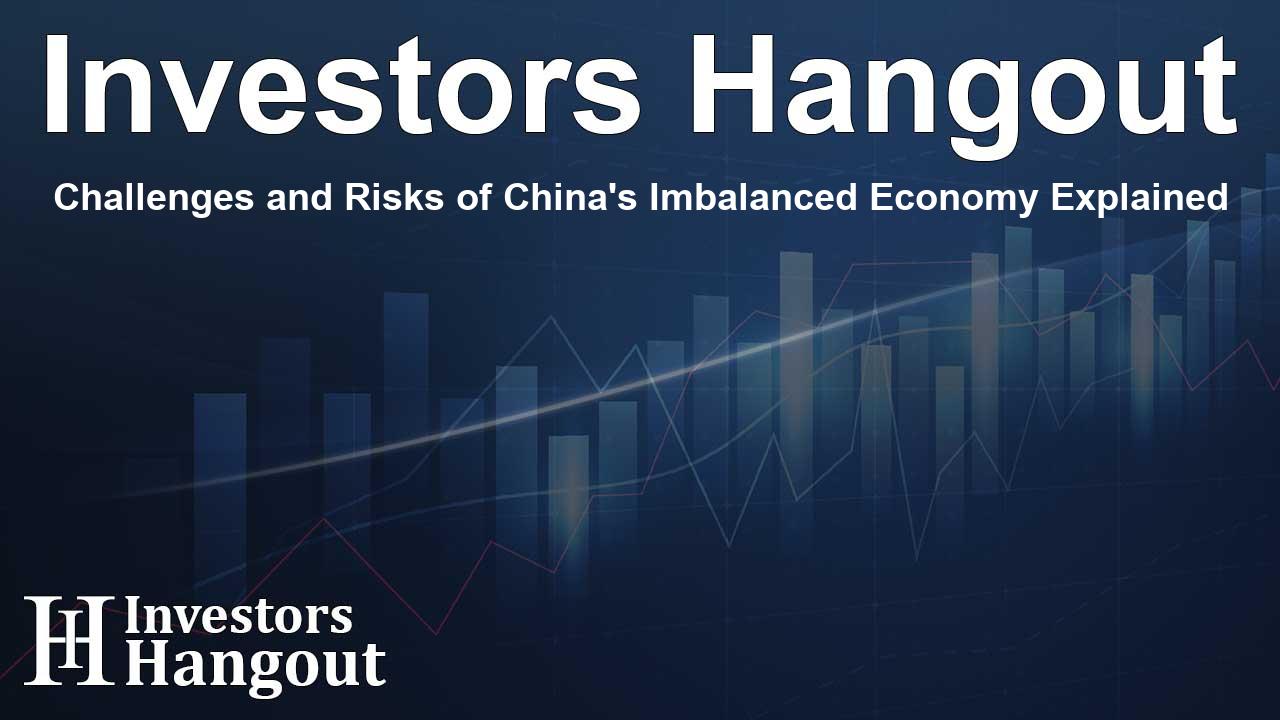Challenges and Risks of China's Imbalanced Economy Explained

Understanding the Challenges of China's Economy
Scott Bessent, an influential figure in U.S. economic policy, recently voiced significant concerns regarding the structure of China’s economy. He characterized it as one of the most unbalanced economies in contemporary history, a viewpoint that has formed the basis of discussions around global trade relations.
China's Economy: Unbalanced and Complicated
In a revealing conversation, Bessent articulated that China's economic framework starkly contrasts with those of Western nations and other Asian democracies. He emphasized how China's extreme focus on manufacturing has skewed its economy, resulting in practices that prioritize job creation over sustainable production models. This has made the nation both a formidable economic and military adversary on the world stage.
Production Beyond Viability
Bessent's criticism of China's production practices highlights a dangerous trend; the prioritization of quantity can lead to diminished quality and sustainability. By relying heavily on subsidized production mechanisms, China has effectively turned certain industries into job assistance programs rather than market-centric enterprises.
The Global Implications of China's Economic Actions
As the pandemic highlighted, China’s escalation in production capacity and innovation in high-tech sectors is concerning for neighboring countries. For instance, China's rapid advancements in the electric vehicle space could disrupt established players like Toyota Motors if competitive incentives shift dramatically.
Responses from the U.S. and Tariffs
The U.S. viewpoints on tariffs have evolved over the years, with Bessent describing existing tariffs as potential melting ice cubes, implying their review or dissolution if trade relations stabilize. Nonetheless, skepticism from economists persists, with influential voices questioning the permanence of such measures if not structured thoughtfully.
Current Trade Negotiations and Expectations
Despite ongoing negotiations, the economic tension reflects broader issues surrounding trade practices and equity. President Trump's administration recently extended the current tariffs on China for an additional three months, reflecting a cautious but necessary measure aimed at nurturing dialogue with China while addressing extensive trade imbalances.
Key Takeaways on Tariff Policies
The persistence of tariffs highlights the complexities facing U.S. trade strategies. Trump’s decision to maintain a 10% tariff underscores the administration's commitment to pushing back against perceived unfair trade practices, fundamentally reshaping expectations in the business community.
The Path Forward for China and Global Economy
As nations grapple with the implications of China’s imbalanced economy, it is essential to establish frameworks that promote equitable trade practices. The challenges ahead will require global cooperation to navigate economic disparities and foster sustainable relations. Bessent’s insights provide a lens through which to view the intricate dance involving economic power, geopolitical tensions, and market dynamics.
Frequently Asked Questions
What did Scott Bessent say about China's economy?
Scott Bessent described China’s economy as one of the most unbalanced in modern history, emphasizing its focus on manufacturing at the expense of sustainability.
How does China's economic structure differ from Western economies?
China's economy prioritizes job creation through government subsidies in manufacturing, contrasting with more market-driven economies that focus on quality and sustainability.
What were Bessent's concerns regarding electric vehicles?
Bessent noted China's competitive lead in electric vehicles poses a threat to established companies like Toyota Motors if market dynamics change.
Why are tariffs being maintained on China?
The tariffs are aimed at addressing trade imbalances and fostering negotiations to ensure fair trade practices, reflecting ongoing tensions in U.S.-China relations.
What does the future hold for U.S.-China trade relations?
The future remains uncertain, but achieving a fair balance through continued negotiations and reevaluation of trade policies will be critical for both economies.
About The Author
Contact Owen Jenkins privately here. Or send an email with ATTN: Owen Jenkins as the subject to contact@investorshangout.com.
About Investors Hangout
Investors Hangout is a leading online stock forum for financial discussion and learning, offering a wide range of free tools and resources. It draws in traders of all levels, who exchange market knowledge, investigate trading tactics, and keep an eye on industry developments in real time. Featuring financial articles, stock message boards, quotes, charts, company profiles, and live news updates. Through cooperative learning and a wealth of informational resources, it helps users from novices creating their first portfolios to experts honing their techniques. Join Investors Hangout today: https://investorshangout.com/
The content of this article is based on factual, publicly available information and does not represent legal, financial, or investment advice. Investors Hangout does not offer financial advice, and the author is not a licensed financial advisor. Consult a qualified advisor before making any financial or investment decisions based on this article. This article should not be considered advice to purchase, sell, or hold any securities or other investments. If any of the material provided here is inaccurate, please contact us for corrections.
